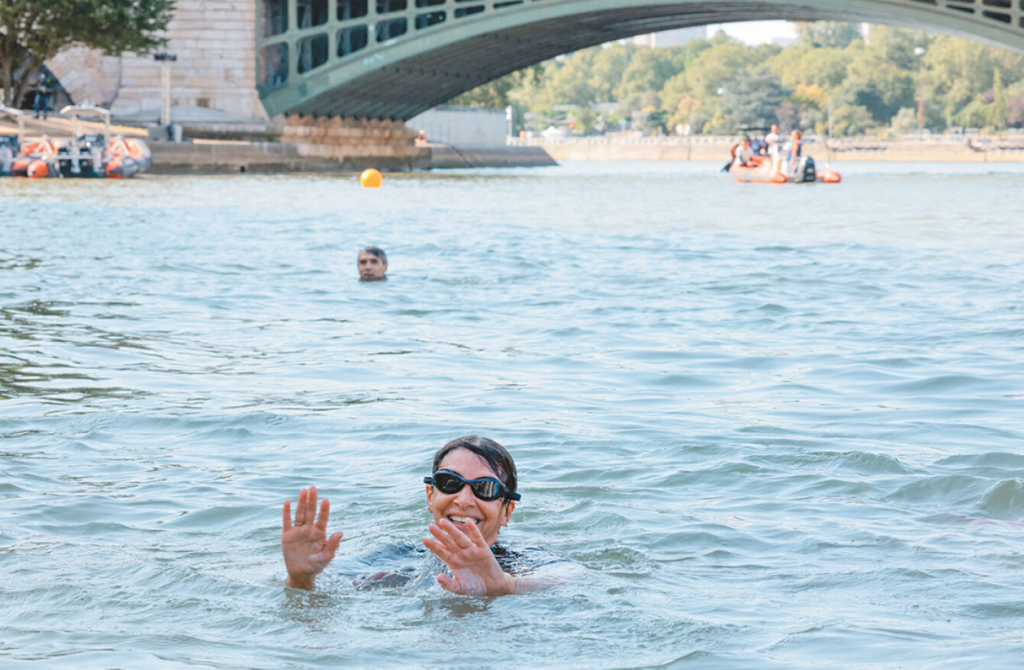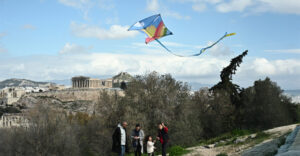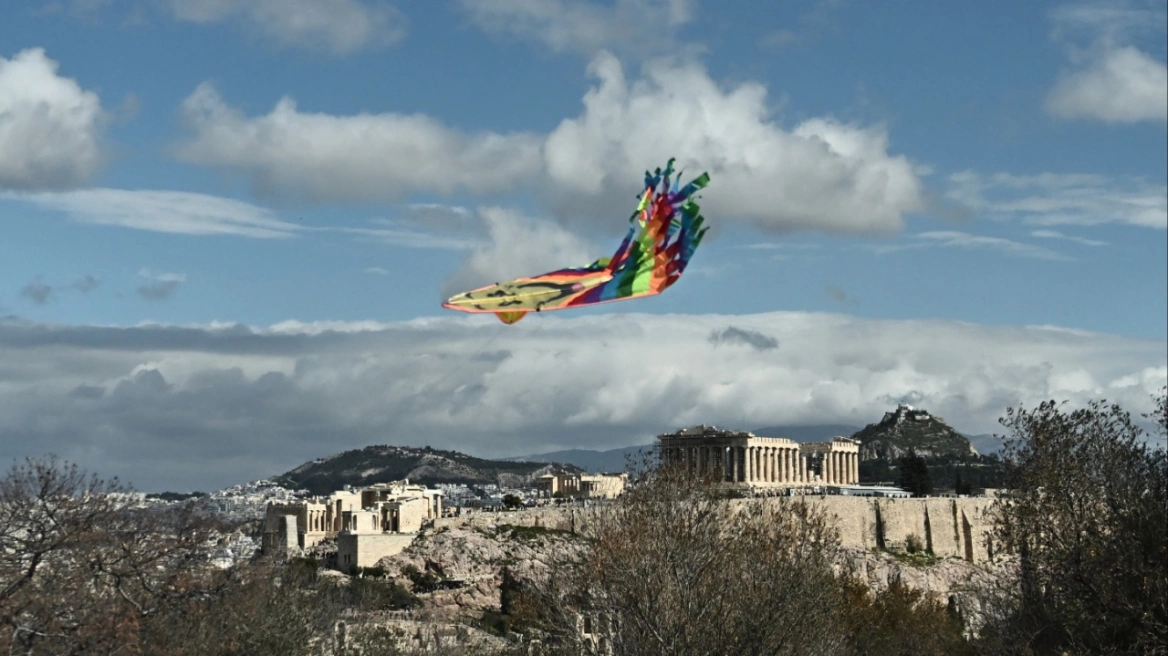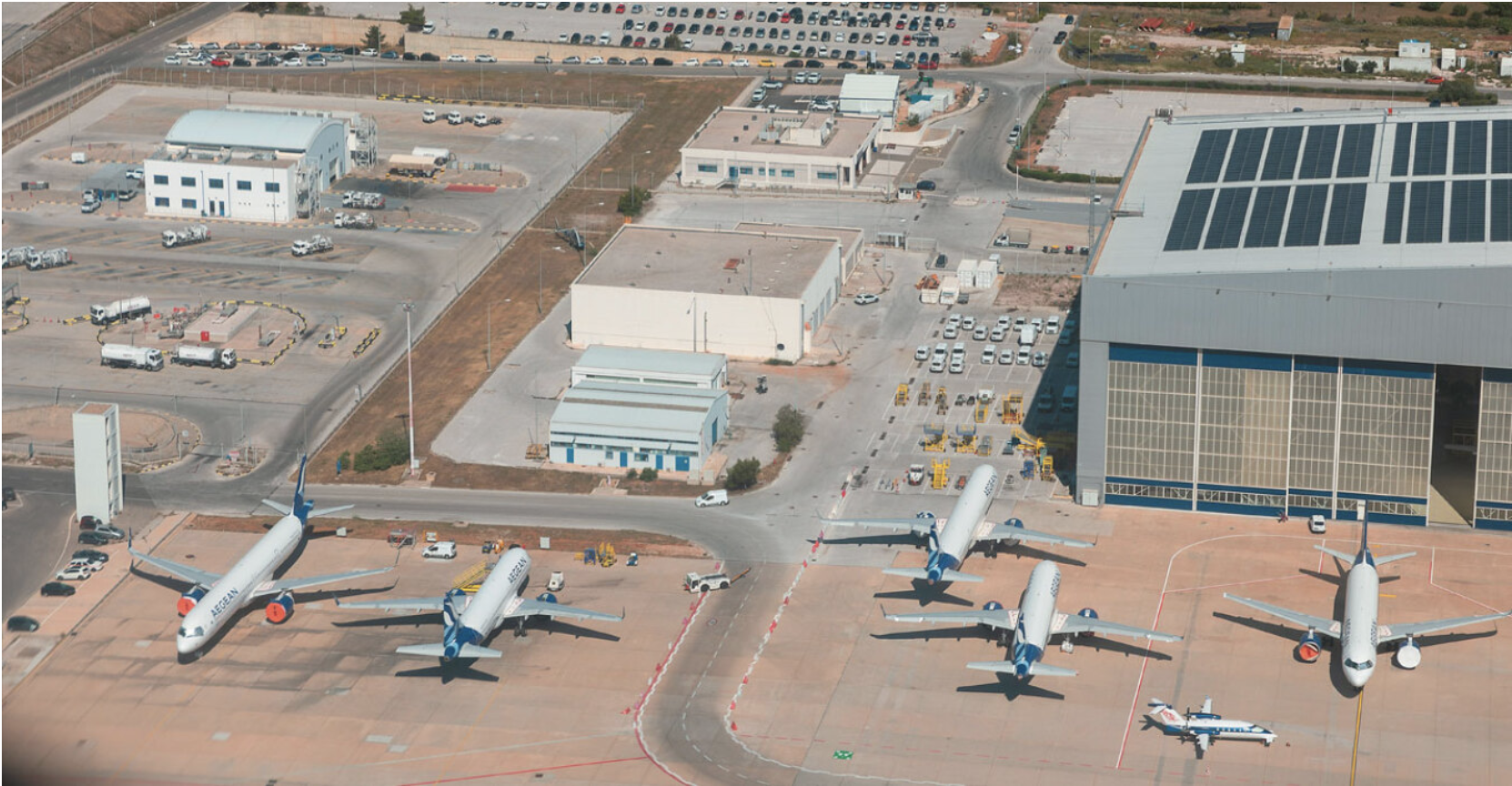On July 26th, at precisely 8:30 PM (Greek time), the entire world will have its eyes and attention focused on Paris. The kickoff for the opening ceremony, which for the first time in Olympic Games history will not be hosted in a stadium but in the heart of Paris, is expected to attract understandable interest and curiosity. It will also heighten already existing concerns about how safe a massive three-hour event can be in the center of a city that has been repeatedly wounded by bloody terrorist attacks.
In reality, the activities of the Games, the first in the post-pandemic world and therefore the first to be held again in the presence of the public and spectators since 2016, will have begun two days earlier with the soccer tournament of the event and the matches between Argentina – Morocco and Uzbekistan – Spain.
Many, of course, believe that the third Olympics hosted by Paris, after 1900 and 1924, have already started—albeit quietly. They even consider the starting point to be the morning of the previous Wednesday when the mayor of the French capital dared to dive and swim in the waters of the Seine. The 65-year-old Anne Hidalgo accepted the challenge and offered herself as a guinea pig to prove to the world that the ten-year Seine cleanup program, which has cost French taxpayers around 1.5 billion euros, has finally borne fruit.

In good news, the mayor is alive and in excellent health after her swim in the river, despite the fact that just two weeks earlier, measurements showed that the concentrations of coliform bacteria in a water sample were ten times above the maximum allowable limit. Equally resilient as Hidalgo was the French Minister of Sports, Amélie Oudéa-Castéra, who took her dip in the famous river last Saturday, making another effort to convince the triathlon and marathon swimming athletes that the Seine is not only hospitable for their events but also, primarily, safe. It is noted that swimming in the river had been banned for health reasons since as far back as 1923.
The only one who has not yet dared to take the plunge he had long promised is the President of France. Emmanuel Macron, who from the start of his presidency in 2017, was a staunch supporter of hosting the Games and exhausted every last bit of his influence to ensure that the French bid prevailed over Los Angeles, which ultimately secured the 2028 Games. At present, he has much more significant issues on his mind than selling his image, something he is admittedly very adept at.
Although the idea of holding an opening ceremony with Paris as the ideal backdrop initially thrilled him, he only expressed concern about the safety of the athletes and the approximately 300,000 spectators this past April and put forward the alternative of Stade de France. In the end, however, calm prevailed, spectacle triumphed over second thoughts, and thus, with the current data, for the first time in history, we will see the 10,500 athletes—50% men, 50% women, as these are the first Olympics of absolute equality—from around the world (or at least some of them) parading on floating platforms during the official opening of the Games.

The opening ceremony is traditionally the crown jewel of the Olympic Games. This is especially true when the French have spent 7.5 billion euros to bring the premier sporting event back to Paris exactly a century after they last hosted it. That’s why they entrusted the orchestration of the three-hour event to a 42-year-old director, who has proven not only his competence but also his boldness and modern aesthetic through his highly discussed performances.
Normandy-born but naturalized Parisian Thomas Jolly took charge of the opening ceremony almost without realizing it himself. Two years ago, he gave an interview to the newspaper “L’Equipe,” in which he shared his grand vision of what an opening ceremony away from stadiums, in the heart of the city, could look like. The organizing committee liked his idea more than he could have imagined, and so, a few weeks later, in September 2022, he was appointed.
The only (but dominant) problem for the French director is that he will not be able to see his artistic vision completed until the moment it is viewed by the rest of the world. Conducting the ceremony along a roughly 6-kilometer route from the Austerlitz Bridge to the Trocadéro, where the Olympic Flame will be lit, obviously prohibits rehearsals, making the task even more challenging.
Nevertheless, Jolly promises a spectacle that will merge the classical with the contemporary face of France. He has committed to an inclusive show that reflects the entirety of the country and has decided to utilize all the landmarks of Paris, which will play a starring role in his artistic vision. He has even described himself as immune to the impossible—a claim well-known to those who watched his 24-hour-long Shakespearean performance two years ago. In any case, his statement heightens expectations.
However, to be honest, neither Jolly nor even Paris will be the main star of the opening ceremony. Bernard Arnault, the world’s richest person and head of the LVMH empire, has ensured that his brands will steal the show. After all, as the 213-billion-euro magnate has said, LVMH craftsmen are perfectionists and meticulous, just like the champions.
The Arnault Factor
Arnault’s sponsorship of the Paris Games, which will conclude on August 11, amounts to a modest estimate of 150 million euros. This sum is enough to justify the intervention he reportedly made to the International Olympic Committee to have his group’s trademarks featured during the opening ceremony. After all, the procession of athletes will sail past two iconic Louis Vuitton boutiques and the “Cheval Blanc” hotel, also owned by Arnault. But the emphatic presence of the French giant at the Paris Games does not end there.
The medals for the event, which will contain metal fragments from the Eiffel Tower, are being created by the historic French house Chaumet, part of Arnault’s portfolio. Both the medals and the torches will be transported in specially designed cases by Louis Vuitton. The Arnault family also undertook to design the official uniforms for the French Olympic team, which numbers around 1,300 members. However, they assigned the job to an Italian brand within their business group, Berluti.
For Bernard Arnault’s eldest son, Antoine, vice-president of Dior, LVMH could not be absent from an event that will broadcast France’s image to the world. However, it’s not just a matter of prestige for the Arnault family, who have close friendly ties with President Macron, that made it imperative to infiltrate almost every aspect of the Paris Games. There are also more practical reasons why the group of 75 luxury brands must make a resounding “presence.”
Once, the audience for these expensive products were the affluent, but according to a recent American study, 60% of consumers are not extraordinarily wealthy individuals but citizens who spend less than 2,000 euros a year—giving from their modest means—to incorporate a hint of luxury into their daily lives. Therefore, the world’s largest sporting event, held every four years, seems like an ideal field for the mass attraction of new customers through indirect advertising.

The Venues
However, the Paris Games will not go down in history solely as the luxurious Games—although Bernard Arnault’s eldest son rejects this characterization and argues that LVMH tried to think and act creatively—nor simply as the Games that, nominally at least, made gender equality a reality. They also aspire to be recorded as the most environmentally neutral Games.
Whether they succeed or not, with this mindset, the organizers tried to utilize existing stadiums and not build new ones, which later they wouldn’t know what to do with—for example, in Athens, 20 years after the Games, we still wonder while venues like the beach volleyball stadium in Faliro Bay are left to rot. The centerpiece of the Paris Olympics will be Stade de France, where the rugby matches and track and field events (August 2-11) will be held. Built in 1998 for the FIFA World Cup and with a capacity of 80,000 spectators, it has been tested in major sporting and concert events and has performed excellently.
Of course, the French couldn’t miss the opportunity to utilize the iconic Roland Garros facilities for the Olympic tennis tournament, as well as for boxing, and the Palace of Versailles for modern pentathlon and equestrian events. Another landmark of Paris, the fully renovated Grand Palais, will initially host fencing and then taekwondo, while the Palais de Bercy (now known as Accor Arena) will host the basketball tournament and artistic gymnastics. The Parc des Princes, the home ground of Paris Saint-Germain, will host the football matches.
In the western part of the city, at La Defense Arena, the heart of the particularly popular rugby in France, swimming competitions and water polo will take place thanks to the building’s multifunctionality. By far the most photogenic venue, created specifically for the Olympics, will be the one in front of the Eiffel Tower. The French had the rather brilliant idea to place a 12,800-seat stadium in the shadow of the most famous Parisian symbol, where the beach volleyball matches will be held.
Brand new is the rowing course, the Vaires-sur-Marne Nautical Stadium, created 35 kilometers west of Paris and delivered in 2019. Sailing events will take place in the south of the country, at the Marseille Marina, while the luckiest athletes will be the surfers, who will travel to Tahiti to ride the waves of the French territory.

The Greek Olympic Team
The Greek Olympic team, which until a few days ago consisted of 101 members, has now been reduced to 100 following the temporary suspension of a track and field athlete who tested positive in an anti-doping control by the Hellenic Anti-Doping Agency. Although Greece does not have a representative in surfing, Greek champions will compete in 15 sports. With flag bearers in the opening ceremony being Antigoni Drismpioti and Giannis Antetokounmpo – since 2020, the IOC allows countries to have both a male and a female flag bearer to promote gender equality – Greece’s delegation is the largest since the 2012 London Olympics and hopes for a better outcome than the modest haul from Tokyo, which saw two gold medals from Stefanos Ntouskos and Miltos Tentoglou, one silver from the men’s national water polo team, and one bronze from Lefteris Petrounias.
For the Rio rings champion, this will be his third Olympic Games. The ping pong champion Panagiotis Gionis will double this number of participations in Paris, while Byron Kokkalanis in windsurfing (iQFoil) and Nora Drakou in swimming will reach four Olympiads. Incidentally, Greece’s swimming team consists of 16 members, including Kristian Gkolomeev, Apostolos Christou, Anna Ntountounaki, Alkis Kynigakis (marathon swimming), and Stergios Bilas, and is in excellent shape as demonstrated by their triumphant performances at the recent European Championship in Belgrade, which yielded 20 medals.
Our country will also participate in artistic swimming in the duet event with Evangelia Platanioti and Sofia Malkogeorgou, as well as in water polo (men and women). Greek representation will also be present in cycling (Giorgos Bouglas), equestrian (Ioli Mytilinaiou), fencing (Dora Gountoura), judo (Elisavet Teltsidou, Theodoros Tselidis), wrestling with three entries and high hopes for Giorgos Kougioumtsidis, tennis (Tsitsipas brothers, Maria Sakkari, and Despina Papamichail), and of course basketball. The rowing team will also be numerous with seven members, as will the shooting team with five participants. As for the king of the Olympic Games, athletics, all eyes will naturally be on Miltos Tentoglou (long jump) and his close friend Emmanuel Karalis (pole vault), who is in excellent form having broken the national record twice in a few weeks.
The Critique
Of course, beyond performance on the competition fields, the Olympics for host cities are also a matter of impressions. And so far, Paris seems not to be winning them, especially after a scathing article by the British newspaper “Telegraph” which was widely circulated last week. In it, the author expresses the opinion that the French capital had no “touristic” reason to want to host the Olympics, as it is already the most famous and popular city in the world with 44 million visitors annually. Instead, he presents the Games as a personal bet, if not an obsession, of President Macron, who, according to the article, is currently witnessing one disappointing statistic after another.
According to the “Telegraph” journalist, hotel occupancy in Paris is lower than the corresponding period last summer, reaching 81%, while he points out that the losses projected by Air France for the third quarter of the year are due to low interest and citizens’ reluctance to travel to where the heart of the Games will beat.
Economic journalist and analyst Matthew Lynn, who has also dealt with the Greek financial crisis in his book, notes that Bernard Arnault was actually enlisted by Macron to save whatever can be saved and concludes that the idea of holding the Olympic Games every four years in the same part of the world should perhaps be seriously considered, even proposing Greece as the ideal location.
Ask me anything
Explore related questions





